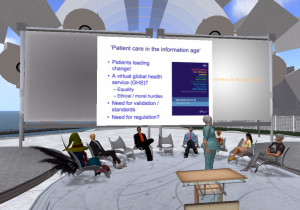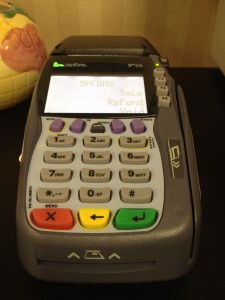May 27th, 2014 by Elma Jane
The BACPAC Act, which establishes a site-neutral bundled payment model for Medicare post-acute care (PAC) introduced earlier this week. According to a press release from the Partnership for Quality Home Healthcare, the proposed payment structure would have PAC coordinators and their networks of post-acute care providers manage patient care through a 90-day, site-neutral bundled payment that would be initiated upon a patient’s discharge from the hospital.
CEO for The Partnership for Quality Home Healthcare, said in the company statement that the proposed legislation offers pro-patient solutions that are founded on years of research and analyses. Additionally, those solutions support a more effective and efficient delivery of quality post-acute care services.
As population ages, the need for well managed post-acute care will become a pressing necessity for the sustainability of our healthcare system. The BACPAC Act of 2014 represents positive Medicare reform that benefits patients, providers and taxpayer alike.
One of the major changes that the bill hopes to make is to reduce hospital readmissions. As the Partnership for Quality Home Healthcare explained, readmissions are a common cost-driver in PAC. However, the proposed legislation creates strong incentive for patients to be placed in the most clinically-appropriate, cost-effective setting. From there, it is more likely that patients would receive more efficient care through their treatment plan.
The bill stemmed from the BACPAC analysis that was proposed by the Alliance for Home Health Quality and Innovation in January. The analysis, compiled and explained the benefits of bundled payment options for post-acute care, as well as how providers can control costs. If implemented correctly, bundling payments for chronic care management, rehabilitative and other forms of post-acute care could lead to more efficiency across care settings and encourage care coordination among providers. In the current fee-for-service system, care coordination is often overlooked, resulting in unnecessary tests, procedures and costs to the Medicare program that often do not improve patient care or outcomes. Medicare could see up to $100 billion in savings over 10 years by moving patients into different settings and reducing spending by certain degrees.
Posted in Medical Healthcare Tagged with: Alliance for Home Health Quality and Innovation, bundled payment, bundled payment options, care providers, chronic care management, costs, healthcare, Home Healthcare, Medicare, Medicare program, Medicare reform, networks, patient care, patient’s discharge, patients, payment, post-acute care, post-acute care services, procedures, provider's, Quality Home Healthcare, taxpayer, tests, treatment plan
October 17th, 2013 by Elma Jane
National Transaction Corporation’s services will work with any existing (Non Proprietary) Terminal. NTC can reprogram an existing terminal as well as service and provide supplies for any terminal.
Below are the following Terminals and Model Type:
1. Hypercom – They produce electronic payment processing hardware and software for a wide range of industries. In 2009 Hypercom co-founded founding the Secure POS (Point Of Sale) Vendor Alliance, a non profit organization created by Hypercom, Ingenico and VeriFone to increase awareness of and improve payment industry security. Hypercom entered into a merger agreement with VeriFone, which closed August 4th, 2011.
Hypercom Machines: T7P – T7Plus – T4100 – T4210 – T4220 IP Terminal. For Precise Detail of the machines please check our website. www.nationaltransaction.com
2. Ingenico – is a leading provider of payment solutions, with over 20 million terminals deployed in more than 125 countries. Ingenico is a worldwide company, whose business is to provide the technology involved in secure electronic transactions. Its traditional business is based around the manufacture of point of sale payment terminals, but it now also includes complete payment solutions and related services. In 2008, after the merging with SAGEM Sécurité, Ingenico decided to close its historical R&D centre in Barcelona. This centre has developed Ingenico’s most successful family of EFTPOS (Electronic funds transfer point of sale). More than three million units sold worldwide in 2007. Ingenico acquired German payment processor Easycash in 2009. In 2011, Ingenico integrated Pennies, The electronic charity box, into one of their market leading mobile Chip and PIN payment terminals, allowing retailers to ‘switch on’ the Pennies solution so their customers can add a micro-donation to their bill when paying by card. As of 2012, over 15 million Ingenico terminals are deployed across 125 countries, with the Ingenico Aqua 50 being their best selling POS (Point Of Sale) terminal.
Ingenico Terminals: iPP220 – iPP320USB – iCT220 PIN Pad – iCT250 CounterTop – Agua PCI – i5100 Dial – i7780 HandHeld i778oM – i7780 Versatile Base – 7770 Intel Base. For Precise Detail of the terminal please check our website. www.nationaltransaction.com
3. VeriFone – is a global provider of technology for electronic payment transactions an international producer and designer of electronic payment solutions and value-added services at the POS (Point Of Sale). VeriFone provides merchant-operated, consumer-facing and self-service payment systems for the financial, retail, travel & hospitality, petroleum, government and healthcare industries. The company’s solutions are utilized by merchants, processors and acquirers in developed and emerging economies worldwide.
VeriFone Models: OMNI 3730LE/VX510LE N – OMNI 3750 4MEG DUAL COM – VX 510 6 MB DUAL COM 12MB – VX570 DUAL COM 6MB WITH SMART CARD – VX610 CDMA (AVAILABLE FOR SPRINT AND VERIZONE). For Precise Detail of the models please check our website. www.nationaltransaction.com
Posted in Credit card Processing, Credit Card Reader Terminal, Credit Card Security, Electronic Payments, Near Field Communication, Point of Sale Tagged with: 15100 Dial, 7770 Intel Base, acquirers, aqua 50, Aqua PCI, Chip and PIN, eftpos, electronic, electronic funds transfer point of sale, financial, healthcare, hospitality, hypercom, i7780, iCT220 PIN Pad, IP, iPP220, iPP320USB, mobile, Omni 3730LE, Omni 3750, paying, payment, point of sale, processor, retailers, Security, T4100, T4210, T4220, T7P, T7Plus, travel, VX 510, VX510LE, VX570, VX610
September 10th, 2013 by Admin
Verizon annually releases it’s Data Breach Investigation Reports which probes data breaches in various industries and studies the nature of fraud reported by merchants and other agencies. In the past Verizon has worked with the U.S. Secret Service, now the information gathered on the electronic payment breaches have expanded to Police Central e-Crime Unit, Australian Federal Police, the Dutch National High Tech Crime Unit, and the Irish Reporting & Information Security Service in addition to the United States Secret Service.
One area that Verizon broke out and performed independent studies on was the healthcare industry. In 2010 the Health Information Technology for Economic and Clinical Health (HI TECH) Act included a provision to report healthcare and medical data breaches to a variety of outlets including the Secretary of Health and Human Services. Medical record protections keep the casual cyber criminal at bay but the majority of security data breaches are in large part targeted at information attackers can profit from. The data cybercriminals target most often includes health insurance data, personal and electronic payment transaction data. Hardware is another assett that is targeted both because of the data on the hardware and the cost of the hardware itself.
Remote data breaches on health care providers were typically carried out through some form of hacking or malware. That is consistent with other industries in the report and is considered the favorites among cybercriminal organizations. Exploiting of default or guessable credentials rang in at the top of the chart. Of those, point of sale payment systems and desktop computers were the highest targeted areas of the health care industry. Although electronic medical records and transcriptions stored on file and database servers were a target, those criminals were more likely interested in indentity theft and fraudulent loans than what was actually in any individuals medical records.
Point of sale payment terminals are the most targeted assett with POS servers and gateways as the second most targeted. Like all other sectors, professional criminals tend to follow the money trail and that ends up being at POS payment systems. So much so that even desktop computers and emails try to get malware onto medical systems to render security policies inneffective. To find out how to better protect medical and healthcare records from cybercriminals and data breaches read the reports here and here.
Posted in Best Practices for Merchants, Credit Card Security, Point of Sale Tagged with: Breach, breaches, electronic payment, gateways, healthcare, medical, point of sale, POS, Security, transactions, transcription


